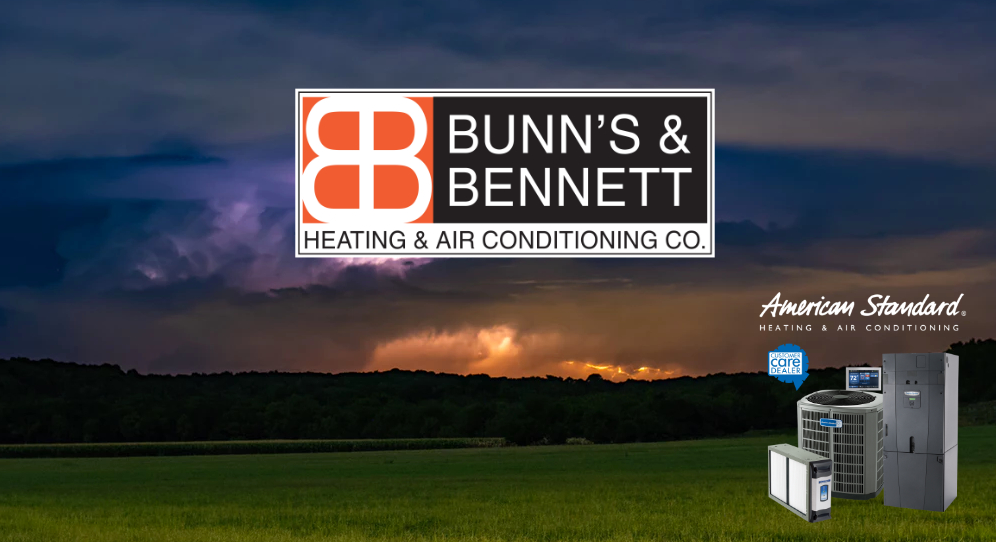While your air conditioner was engineered to endure all of the crazy weather in the Tennessee Valley, occasionally severe weather might lead to the need for an AC repair. For instance, bad weather oftentimes corresponds with power surges. Since your HVAC system is electronic, and power surges and electronics do not go well together, you should take steps to protect your HVAC system. In severe weather situations, It’s ideal to turn your system off using your thermostat and turn off the circuit breaker in order to provide maximum protection during a storm.
Can Rain Water Damage Your System?
Some folks have concerns about too much water getting on their outside air conditioner and choose to cover it with a tarp or cover. This is not necessary, and could essentially damage your AC if you neglect to remove the cover before running it again. Your AC was made to handle rain and snow, so there is no need to cover your outside unit during inclement weather. However, if you notice your unit is in standing water after a storm, you’ll want to call a certified HVAC contractor such as Bunn’s and Bennett Heating and Air to check your system before you turn it back on.
Falling or Flying Objects
Another threat to your AC throughout severe weather is falling (or flying) objects. This is a little harder to prevent, but keeping loose outdoor items secured can help lower your risk. Once the storm passes, make sure to clean up any debris that may have collected around your unit. If debris did hit and damage your unit, a licensed HVAC contractor such as Bunn’s and Bennett Heating and Air can examine it and perform an AC repair if it’s needed.
Excessive Heat
In addition to storms, summer is known for its blazing heat. Just like it was made to withstand water, your AC was made to handle high outside temperatures. But, the hotter the sun, the harder your AC has to work to cool your home. You can help prevent some wear and tear by keeping your home’s temperature setting a little higher on these days. The closer your indoor temperature is to the outdoor temperature, the easier the work is for your AC. Many people are still comfortable with their thermostats set to about 78 degrees Fahrenheit on really hot days. Note that the older your AC is, the more it may struggle in hotter weather.
Contact Us
If you have any questions about the effects of severe weather on your air conditioner or think you are in need of an AC repair, call Bunn’s and Bennett Heating and Air at 256-536-0967, or email us at [email protected].






